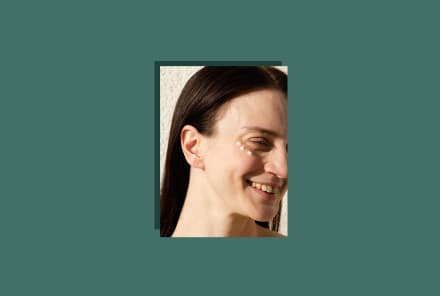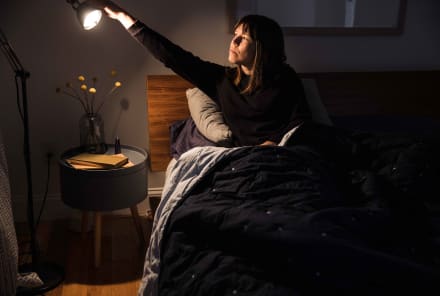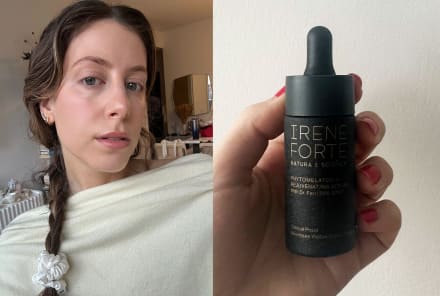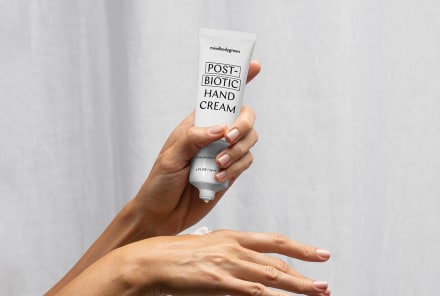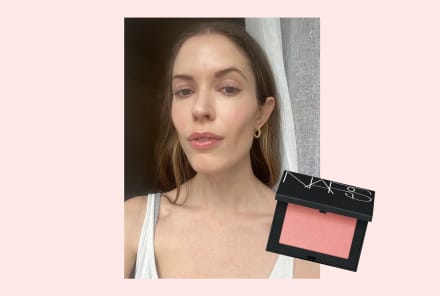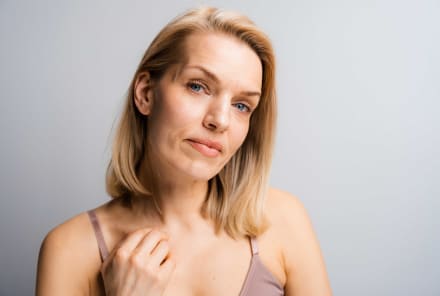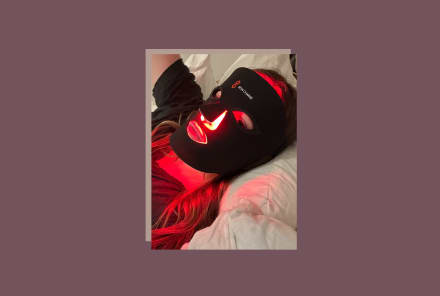Advertisement
Harriet A. Washington On Environmental Injustice & Creating A Less Toxic World

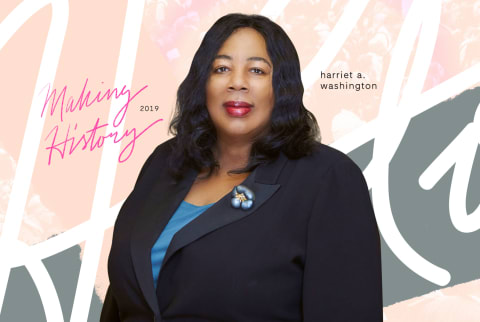
In our series, Making History, we're talking to people who are leading the charge to bring much-needed diversity to wellness. They're sharing with us the work that they do, highlighting the voices that need to be heard, and telling us what we as a wellness community aren't talking about—but should be. This week, we spoke with Harriet A. Washington, an acclaimed journalist and author whose writing explores the inherent inequalities in today's health system. Her latest book A Terrible Thing to Waste: Environmental Racism and Its Assault on the American Mindreveals how, in the U.S. people of color have been disproportionately exposed to neurologically damaging contaminants for decades. Here's Harriet talking about this powerful project and how she hopes it can inspire change.
Why did you first decide to write "A Terrible Thing to Waste"?
I've been interested in the topic for a very long time. In the 1980s, I managed a poison control center in upstate New York and learned a great deal about poisonings. I was frankly fascinated by them: There are so many that are exotic and interesting and don't have a straightforward effect.
And then I studied public health as a fellow at Harvard School of Public Health, and that renewed my interest in them. But it wasn't until after I finished my book Medical Apartheid, and more recently, Infectious Madness, that I began thinking very specifically about the cognitive consequence of poisoning.
And of course, my interest in this disparate health treatment of African Americans played into this as well. It all coalesced into my wanting to make people more broadly aware of the cognitive cost of environmental racism—environmental exposure that's much more acute among people of color.
How did you go about writing and researching this book?
It didn't differ greatly from my process for other books. Some might say I over-research books—but I'm more comfortable with that than not knowing enough.
First, I talked to toxicologists who were focused very heavily on the cognitive effects of poisoning. After talking to them, and getting from them a good sense of how extensive the problem was (which was incredibly extensive!), I needed to quantify these exposures. It's not enough to say, "People of color are more exposed." You need to quantify it. Are we talking about a dramatically different risk or a more subtly different risk? I did that by speaking to these researchers and by reading the relevant literature.
The hardest part of it was weaving it together and illustrating it with people's actual lived experiences so that readers would get a sense of the immediacy of the issue. One of the things I encountered as early as writing Medical Apartheid was an appreciation for the fact that people who've been victimized by the health care system understandably tend to lose their trust with other people. So even people like me, who were trying to showcase their vulnerability and how they've been wronged—they sometimes don't trust me. So that was difficult too, but it was worth it in the end.
Definitely—the personal stories were so compelling. What were some of the most shocking things you saw and heard when meeting with people on the ground?
I'm frequently asked that question, and the truth is I can't answer it honestly because there were so, so many things that happened on so many different spheres. I won't say it's the most shocking aspect, but I will say that the two things I found the most dramatic were the extent to which corporations will go to deflect scrutiny and to basically demonize people who call the safety of their products into question. One of the themes of the book is that there's a great deal of blaming the victims going on. The victims tend to be powerless people, invisible people. And the corporations sometimes demonize these poisoned people, basically telling them their sickness and their children's sickness is their fault.
The second thing that surprised me was how infinitesimally small doses can poison the brains of fetuses and children. I knew from my work at the poison center that was the case, but I didn't know the extent to which this happens.
I especially loved this line of your new book: "Assuming that nothing can be done is a self-fulfilling prophecy. Nothing will be done by a nation that adopts this stance." In your opinion, what can be done to reduce toxic exposures in this country?
There are a few things that need to happen. And one of them is very simple, but it's not very popular among industry. As I point out in the book, in the European Union and other places, chemicals that come in contact with humans have got to be tested for their effects on humans before they are released. In this country, we don't test anything until someone gets injured, in most cases. So we've got 60,000 chemicals, roughly, that have never been tested for the human health effects.
Quite a few of those have been indicted by scientists—including scientists in prestigious organizations—to be dangerous to health. And yet the industry is fighting testing. What happens is, when tests show that there are deleterious effects on health, they demand higher and higher standards of proof. It's almost impossible to satisfy them.
Look what happened to lead. How many people died, and how many IQ points were lost in the decades it took to take lead out of paint and lead out of gas? When it was taken out, poisoning went down and health went up.
Why is there such a rush to put these chemicals out before the proper testing is done? Is it an economic issue?
That question is actually the heart of the matter. It's an economic issue. They don't want to spend the money to have it tested. And frankly, industries exist to make profits. That's their goal. And I don't actually put the onus on them to keep us safe. It's the government's responsibility.
What kind of change do you hope this book will spark in this country?
I wanted to make people aware that poisonous substances are not only killing people, crippling their bodies, but they're also crippling minds.
Who do you see as leaders in the environmental justice movement right now?
Well, there are quite a few. A lot more than there used to be. For example, Aaron Mair, who is African American, was the president of the Sierra Club a few years ago. Robert Bullard is an extremely important scientist, often called the father of the environmental justice movement.
We also have people like the wonderful Mustafa Ali. He's worked with several administrations very successfully in heading up the EPA's Environmental Justice Department. But when they began to cripple and defund the department, and he saw other changes that ran counter to what he believed to be the goals of the EPA, he resigned. He didn't want to be part of that. And this was a great loss—because not only is he brilliant and dedicated to resolving environmental injustice issues, but he's got all this experience and all this knowledge. If we want diverse leadership in the government, we have to make it a less hostile place for African Americans to work.
Climate change is going to have a horrible effect on everybody—especially those who are already the victims of the worst toxic exposures.
But I'm also a realist. When you're 13% of the population, it's going to be hard if not impossible to get anything politically done without friends. Without other supporters.
I don't see this as a purely racial issue, quite frankly, because it's something that's going to require cooperation from everyone. It's going to require a recognition that there's a problem that needs to be solved, not only for the sake of people of color.
As you were researching this book, did any information come up about the effect that climate change disproportionately has on communities of color?
A lot came up, and I actually had included that in the book at first, but it was going to be too long. Climate change is a bit more democratic in its origins, although not in its effects. I hate to say it this way, but if the government just used common sense, it's really apparent that climate change is going to have its worst effects among the people who are already assaulted by other toxins.
For example, I've been reading about these red tide poisonings that are becoming more and more frequent. Domoic acid is produced by some of these bacteria in these red tides. And domoic acid attacks the hippocampus in the brain. People who've had domoic acid poisoning by eating tainted mussels during red tide outbreaks have actually lost their short-term memory permanently. Some of them have died, and for the survivors, it's really, really horrible and tragic. Imagine that you suddenly lost your ability to make new memories.
With climate change, we are going to have more and more of these red tide outbreaks. Climate change is going to have a horrible effect on everybody—especially those who are already the victims of the worst toxic exposures.
This interview has been edited and condensed for clarity.
Watch Next
Enjoy some of our favorite clips from classes
Enjoy some of our favorite clips from classes
What Is Meditation?
Mindfulness/Spirituality | Light Watkins
Box Breathing
Mindfulness/Spirituality | Gwen Dittmar
What Breathwork Can Address
Mindfulness/Spirituality | Gwen Dittmar
The 8 Limbs of Yoga - What is Asana?
Yoga | Caley Alyssa
Two Standing Postures to Open Up Tight Hips
Yoga | Caley Alyssa
How Plants Can Optimize Athletic Performance
Nutrition | Rich Roll
What to Eat Before a Workout
Nutrition | Rich Roll
How Ayurveda Helps Us Navigate Modern Life
Nutrition | Sahara Rose
Messages About Love & Relationships
Love & Relationships | Esther Perel
Love Languages
Love & Relationships | Esther Perel


